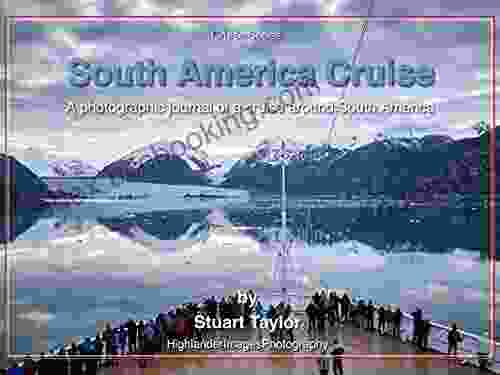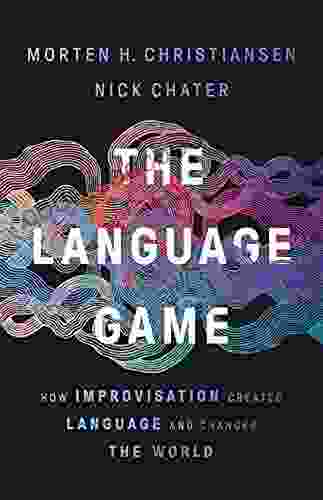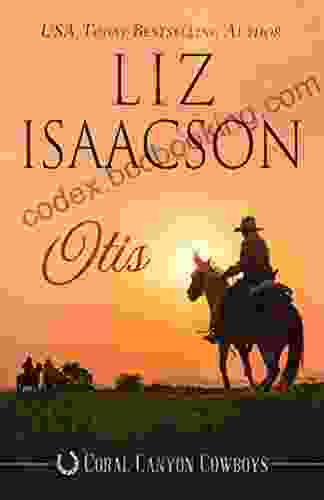How Improvisation Created Language And Changed The World

Language is one of the most important aspects of human culture. It allows us to communicate with each other, share ideas, and build relationships. But where did language come from? How did it evolve from simple grunts and gestures to the complex and sophisticated systems we use today?
In his book How Improvisation Created Language And Changed The World, linguist Scott DeLancey argues that language emerged from improvisation. He believes that our ancestors began to use vocalizations and gestures to communicate with each other in Free Download to coordinate their activities. Over time, these improvisations became more and more complex and structured, eventually giving rise to the languages we use today.
4.5 out of 5
| Language | : | English |
| File size | : | 9165 KB |
| Text-to-Speech | : | Enabled |
| Screen Reader | : | Supported |
| Enhanced typesetting | : | Enabled |
| Word Wise | : | Enabled |
| Print length | : | 305 pages |
DeLancey's theory is supported by a number of studies. For example, one study found that infants are able to produce a wide range of vocalizations, even though they have not yet learned any words. This suggests that the ability to produce language is innate, and that it may have evolved from the vocalizations that our ancestors used to communicate with each other.
Another study found that people who are good at improvising are also good at learning new languages. This suggests that there may be a connection between improvisation and language acquisition. It is possible that the ability to improvise helps us to learn new languages by allowing us to experiment with different sounds and combinations of words.
DeLancey's theory is a fascinating and thought-provoking account of the origins of language. It suggests that language is not a static entity, but rather a constantly evolving system that is shaped by our need to communicate with each other.
The Evolutionary Benefits Of Improvisation
Improvisation is not just a way of creating language. It is also a way of life. Improvisation allows us to adapt to changing circumstances, solve problems, and connect with others. It is a skill that can benefit us in all aspects of our lives.
There are a number of evolutionary benefits to improvisation. For example, improvisation helps us to:
- Adapt to changing circumstances. When we improvise, we are able to quickly and easily change our plans in Free Download to respond to unexpected events. This ability to adapt is essential for survival in a constantly changing world.
- Solve problems. Improvisation can help us to find creative solutions to problems. When we are faced with a challenge, we can use improvisation to experiment with different ideas and approaches until we find one that works.
- Connect with others. Improvisation can help us to build relationships with others. When we improvise together, we are able to share our ideas and experiences in a spontaneous and playful way. This can help us to build trust and rapport with others.
Improvisation is a powerful tool that can help us to live more fulfilling and successful lives. By embracing improvisation, we can learn to adapt to change, solve problems, and connect with others in a more meaningful way.
How To Improvise
If you want to learn how to improvise, there are a few things you can do. First, start by practicing improvising in low-stakes situations. This could involve making up songs or stories with your friends, or simply playing around with different sounds and rhythms. As you get more comfortable improvising, you can start to take on more challenging situations.
Here are a few tips for improvising:
- Be open to new ideas. When you are improvising, it is important to be open to new ideas. Don't be afraid to experiment with different sounds, words, and movements.
- Don't be afraid to make mistakes. Mistakes are a natural part of the improvisation process. When you make a mistake, don't try to cover it up. Instead, use it as an opportunity to explore new possibilities.
- Listen to your instincts. When you are improvising, it is important to listen to your instincts. If something feels right, go with it. Don't be afraid to trust your gut.
Improvisation is a skill that takes practice. But with time and effort, you can learn to improvise like a pro. So go ahead, give it a try. You might just surprise yourself.
Language is a powerful tool that has allowed us to achieve great things. It is a tool that we can use to communicate, learn, and create. But where did language come from? How did it evolve from simple grunts and gestures to the complex and sophisticated systems we use today?
The answer to this question is found in improvisation. Improvisation is the ability to create something new and spontaneous. It is a skill that is essential for language, music, and art. It is also a skill that can benefit us in all aspects of our lives.
So if you want to learn how to improvise, go ahead and give it a try. You might just surprise yourself.
4.5 out of 5
| Language | : | English |
| File size | : | 9165 KB |
| Text-to-Speech | : | Enabled |
| Screen Reader | : | Supported |
| Enhanced typesetting | : | Enabled |
| Word Wise | : | Enabled |
| Print length | : | 305 pages |
Do you want to contribute by writing guest posts on this blog?
Please contact us and send us a resume of previous articles that you have written.
 Book
Book Novel
Novel Page
Page Chapter
Chapter Text
Text Story
Story Genre
Genre Reader
Reader Library
Library Paperback
Paperback E-book
E-book Magazine
Magazine Newspaper
Newspaper Paragraph
Paragraph Sentence
Sentence Bookmark
Bookmark Shelf
Shelf Glossary
Glossary Bibliography
Bibliography Foreword
Foreword Preface
Preface Synopsis
Synopsis Annotation
Annotation Footnote
Footnote Manuscript
Manuscript Scroll
Scroll Codex
Codex Tome
Tome Bestseller
Bestseller Classics
Classics Library card
Library card Narrative
Narrative Biography
Biography Autobiography
Autobiography Memoir
Memoir Reference
Reference Encyclopedia
Encyclopedia Jan Berenstain
Jan Berenstain Emma Kertesz
Emma Kertesz Michelle Mulder
Michelle Mulder Eric A Kimmel
Eric A Kimmel William Strauss
William Strauss Elliot Kay
Elliot Kay Toni Crowe
Toni Crowe Michael Mccree
Michael Mccree Rebecca Zung Esq
Rebecca Zung Esq Vicki Callahan
Vicki Callahan Emilie Bailey
Emilie Bailey Emmet Cruz
Emmet Cruz Ellen Johnson Sirleaf
Ellen Johnson Sirleaf Richard Brownell
Richard Brownell Randi Druzin
Randi Druzin Sheila Keenan
Sheila Keenan Ellie Curzon
Ellie Curzon Hernan Diaz
Hernan Diaz Frances Stanfield
Frances Stanfield Elliot J Smith
Elliot J Smith
Light bulbAdvertise smarter! Our strategic ad space ensures maximum exposure. Reserve your spot today!

 John ParkerMagical Beginnings, Enchanted Lives: Embracing the Extraordinary in Everyday...
John ParkerMagical Beginnings, Enchanted Lives: Embracing the Extraordinary in Everyday...
 Jimmy ButlerUnlock the Secrets to Success: Unleash the Power Within "On Work, Money, and...
Jimmy ButlerUnlock the Secrets to Success: Unleash the Power Within "On Work, Money, and... Joseph HellerFollow ·16.3k
Joseph HellerFollow ·16.3k Justin BellFollow ·15.3k
Justin BellFollow ·15.3k Braeden HayesFollow ·4.7k
Braeden HayesFollow ·4.7k Edward BellFollow ·5.9k
Edward BellFollow ·5.9k Donald WardFollow ·12.5k
Donald WardFollow ·12.5k Darnell MitchellFollow ·7.7k
Darnell MitchellFollow ·7.7k Floyd PowellFollow ·5.2k
Floyd PowellFollow ·5.2k Philip BellFollow ·19.2k
Philip BellFollow ·19.2k

 Isaias Blair
Isaias BlairEscape to Sunrise Cottage: A Captivating Read You Won't...
Are you ready for a...

 Bradley Dixon
Bradley DixonWhen Baby Is Born, So Is Mother: A Comprehensive Guide to...
Giving birth is a...

 Mario Simmons
Mario SimmonsPhotographic Journal of Cruise Around South America: A...
Embark on an Extraordinary Expedition ...

 Langston Hughes
Langston HughesDream Achieved: Unlocking the Power Within to Make Your...
In the tapestry...
4.5 out of 5
| Language | : | English |
| File size | : | 9165 KB |
| Text-to-Speech | : | Enabled |
| Screen Reader | : | Supported |
| Enhanced typesetting | : | Enabled |
| Word Wise | : | Enabled |
| Print length | : | 305 pages |












